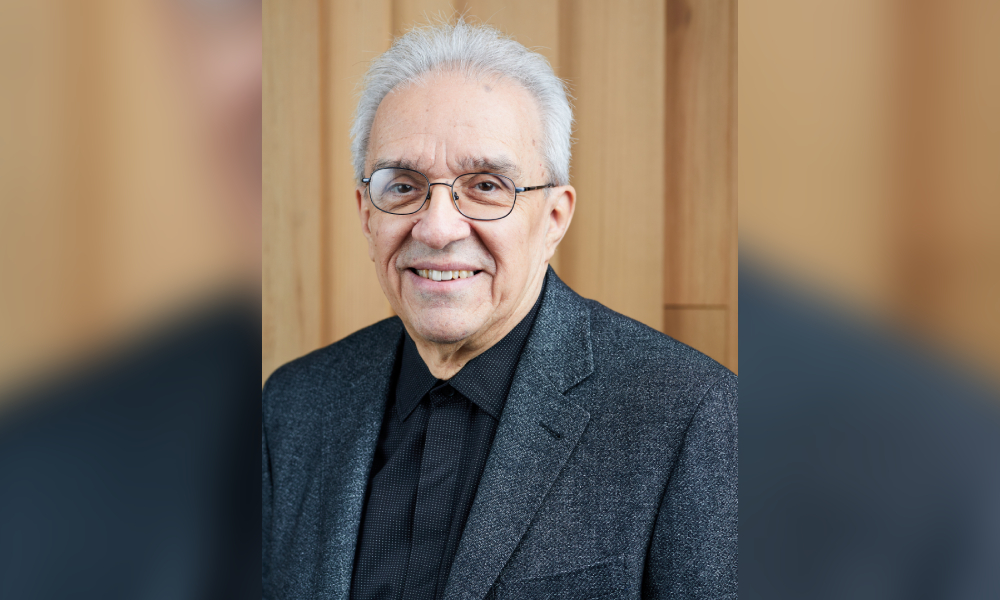
Trailblazing judge Harry LaForme is now the third person from the Mississaugas of the Credit First Nation to be named to the Order of Canada.
The Governor General announced 99 new appointees to the esteemed group of notable Canadians last week, with LaForme joining iconic hockey star Sidney Crosby, among other high-profile Canadians, to this year’s appointees.
“It was a surprise,” LaForme told The Two Row Times. “I didn’t know my name had been put forward.”
But as the congratulations pour in from his peers across the country, LaForme says the most meaningful well wishes come from the people in his home community, both from MCFN and neighbouring Six Nations.
“I felt good for my community and my little reserve,” he said.
At first, LaForme didn’t know what to make of the news when he learned he had been named an officer of Canada’s highest civilian honour.
“I didn’t think much of it. Then I got more excited than I thought I would.”
LaForme, who started his professional life as an engineer, has led a storied life marked by fighting for justice.
As a young man, before he became a lawyer in the 70s, he was active with the budding grassroots political organization, AIAI – the Association for Iroquois and Allied Indians – started by his grandfather and uncle in opposition to Pierre Trudeau’s White Paper of 1969.
Born in 1946, LaForme witnessed a lot of oppression toward Indigenous people.
“I grew up at a time when the whole reserve and everything about native people was regulated by these faceless people from Ottawa,” he said. “They ran our lives and our government. I got involved with AIAI at first and that’s how I got involved in Indigenous politics in the beginning. I got into the Indian movement. The whole thing just took on a life of its own. They were organizing across Canada to be in opposition to the white paper. I got interested in law in the early 70s.”
He went to an eight-week law program in Saskatchewan specifically focusing on legal studies and Indigenous people and immediately fell in love with the practice of law.
He was admitted to renowned law school Osgoode Hall, and from there, he led a trailblazing career as an Indigenous lawyer, and later, the first Indigenous appellate judge in Canada.
“There were only four indigenous lawyers in Canada at the time (in the 70s),” he said.
LaForme started his career with a big commercial law firm in downtown Toronto as an articling student for one year. When he was asked to return a second year, he lasted 10 months before bowing out and starting his own firm.
One thing led to another and in 1994, he was asked to become a judge.
He became one of only three Indigenous judges in Canada. He covered the trial circuit at that time.
His big “first” came in 2004 when he was appointed as Canada’s first Indigenous appellate judge.
The minister of justice at the time told him he would make a good appellate judge stating, “who better to know about injustice than someone who has lived with injustice?”
He spent 14 years in that role.
One of his proudest achievements, however, is his instrumental part in writing a decision for same-sex marriage in Canada in 2002.
“My wife says I changed the world. That’s one of the cases I’m out proud of and happy to be involved in.”
He said he understood the injustice of same-sex couples not being allowed to marry because of the injustice he witnessed his people go through his whole life.
His argument for legalizing same-sex marriage was adopted by the court of appeal.
“That was the thing that did it all for equal marriage in Canada. I was extremely proud of that.”
Currently, LaForme is fighting against the overrepresentation of Indigenous people in Canada’s legal system and prisons.
The imprisonment numbers for Indigenous people in Canada keeps increasing every year, he said.
“Our people get arrested and jailed more than ever before.”
They also face more wrongful convictions than any other demographic in Canada.
LaForme, senior counsel at Olthuis Kleer Townsend, a law firm solely specializing in Indigenous issues, was also instrumental in the First Nations Drinking Water class-action settlement approved last year.
Appointees to the Order of Canada will receive their insignia at an investiture ceremony with details yet to be announced.






